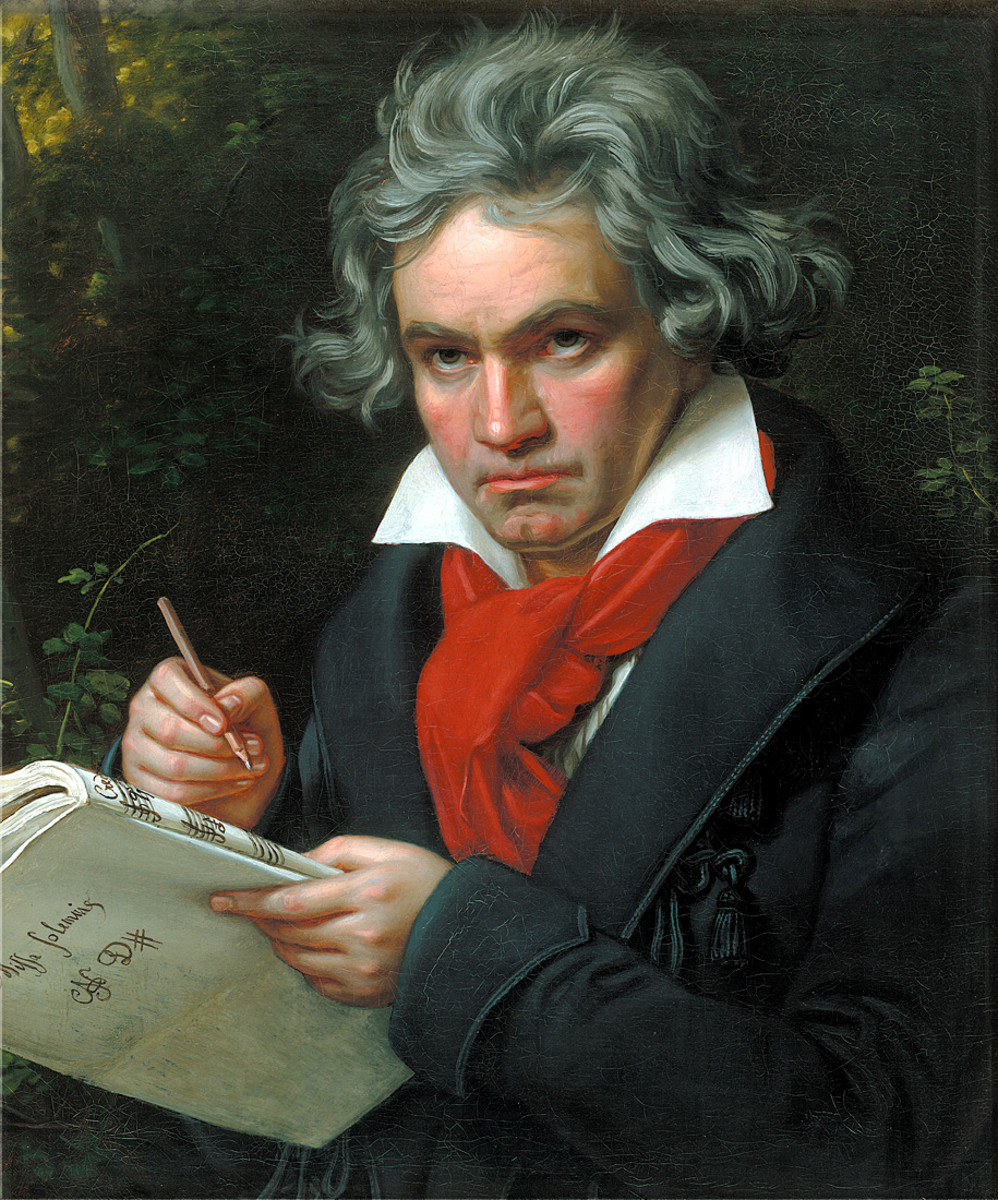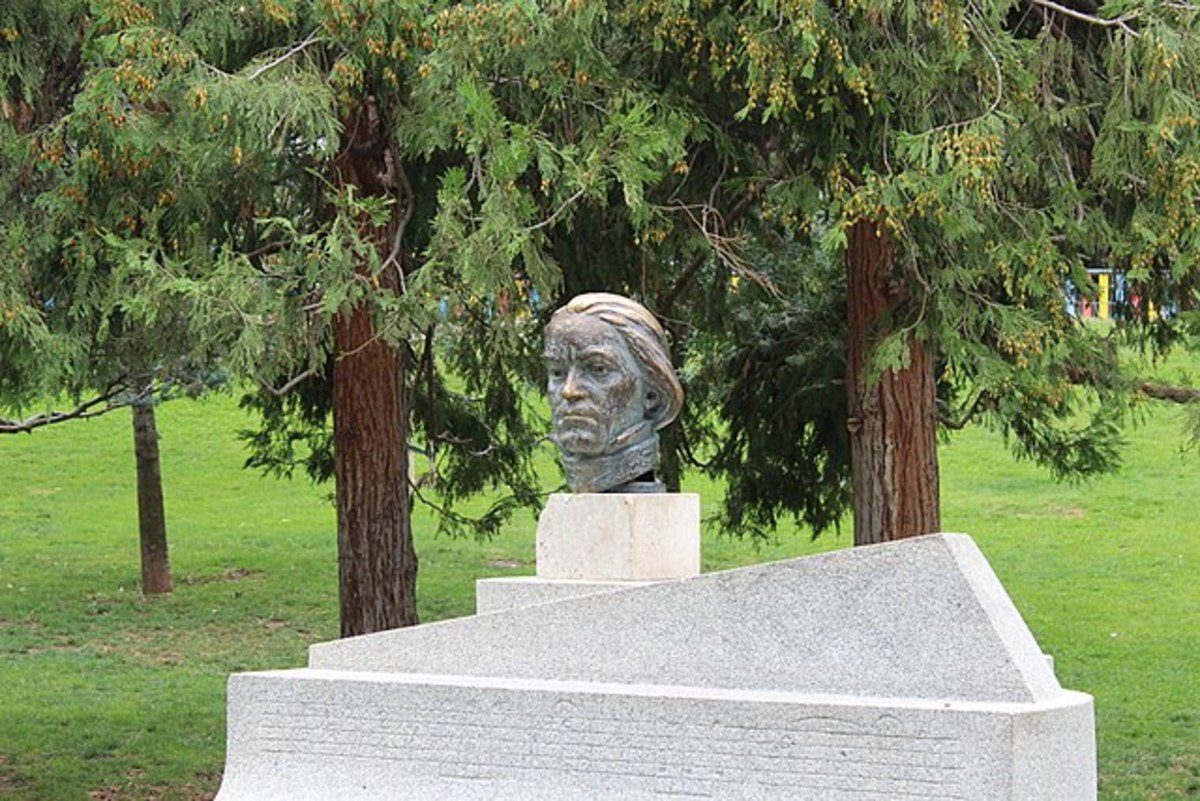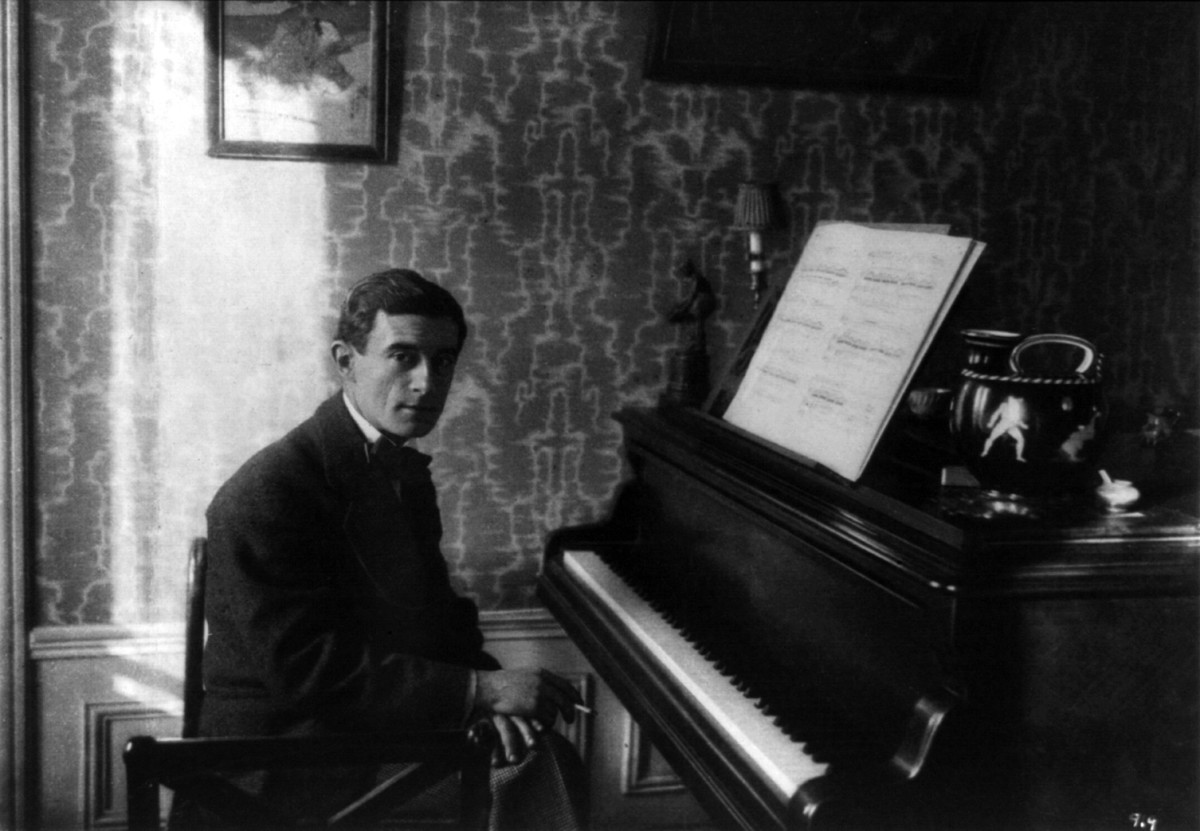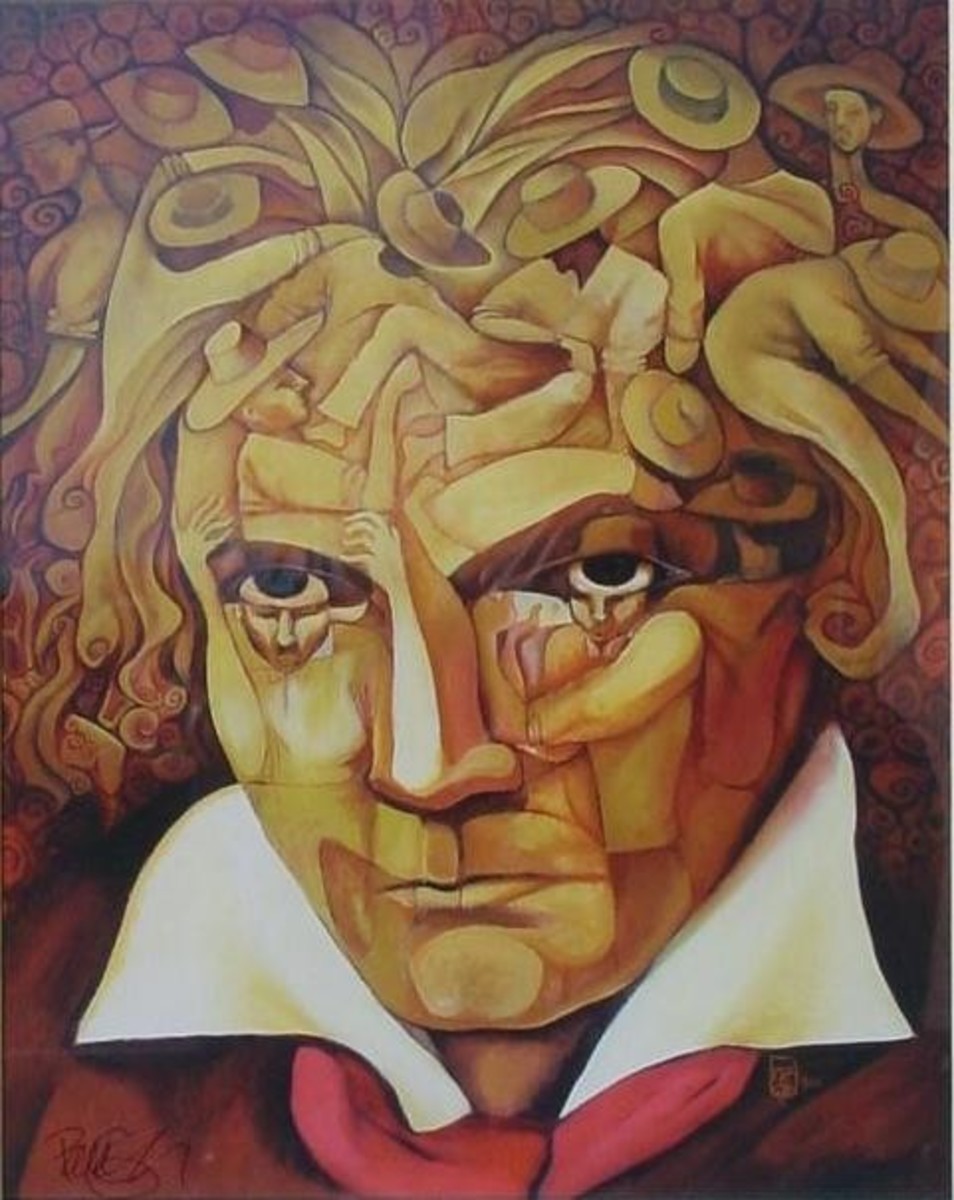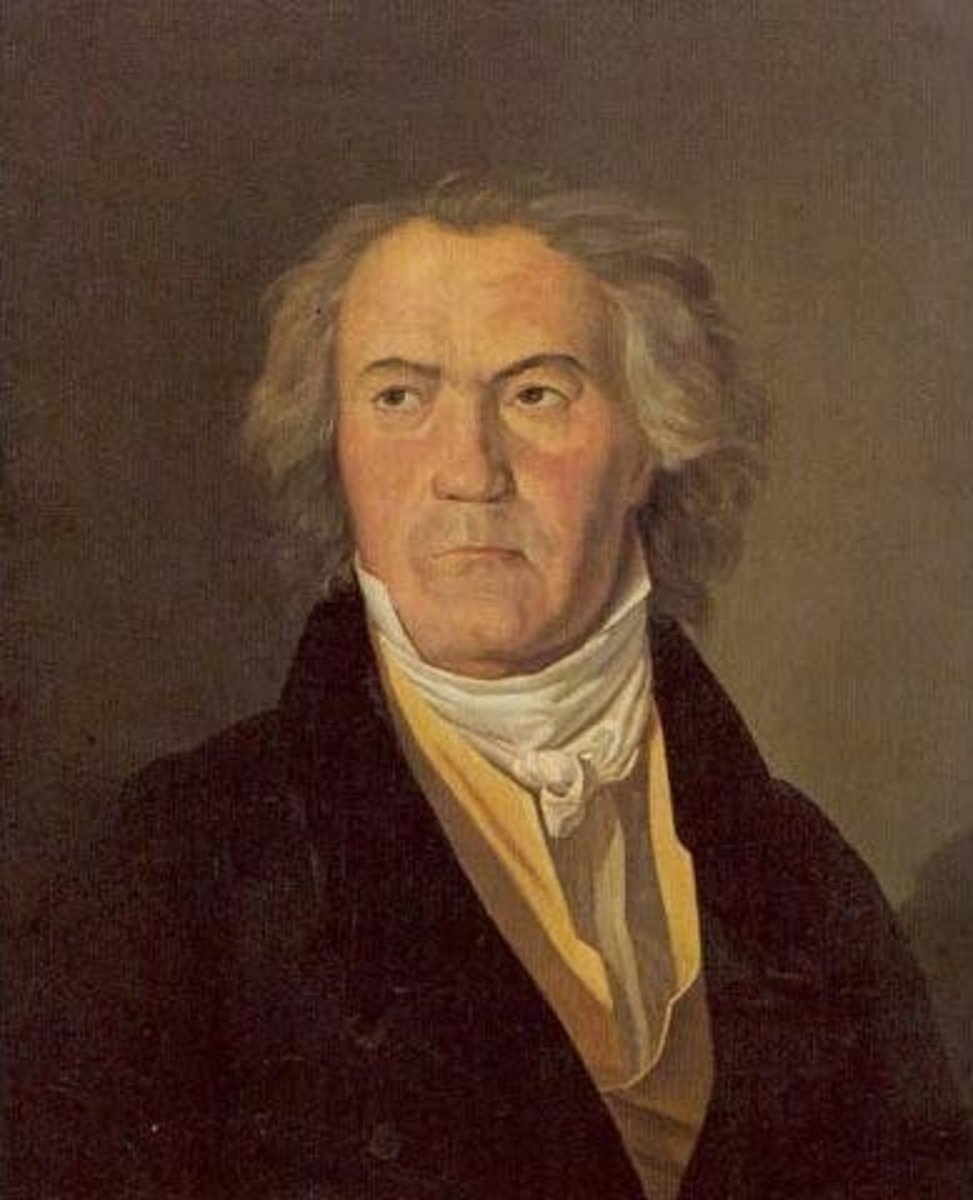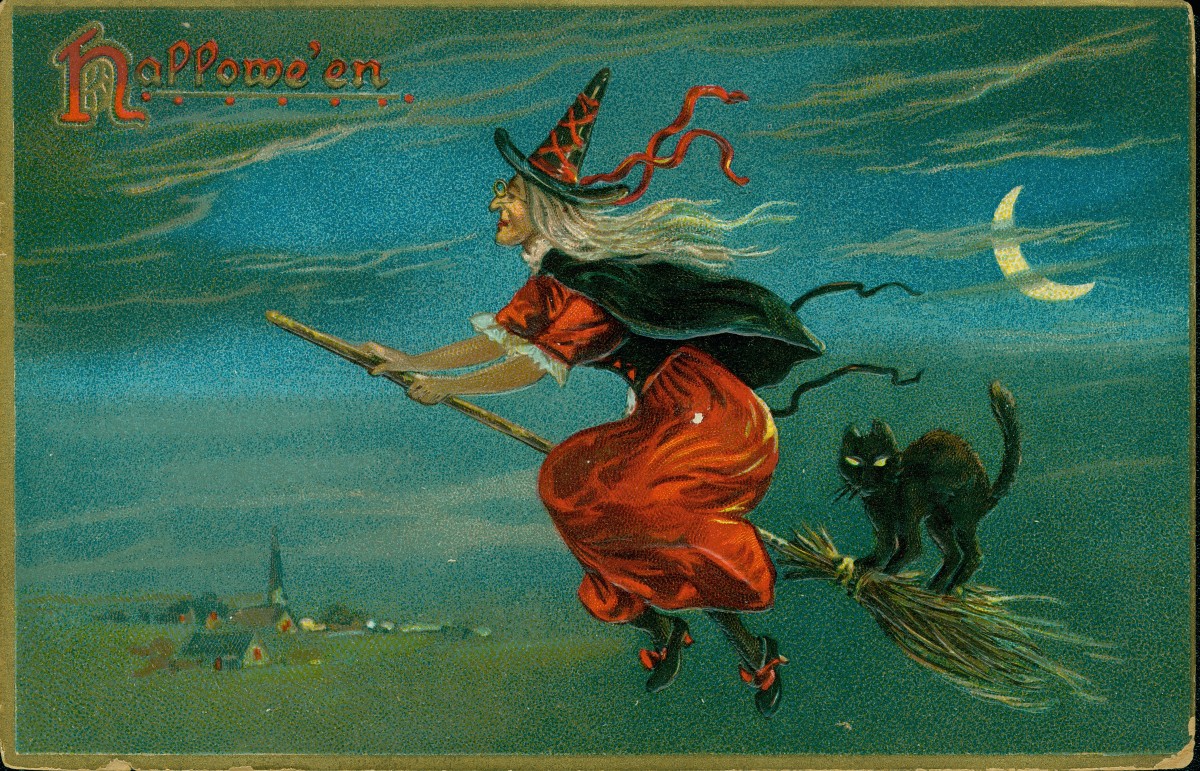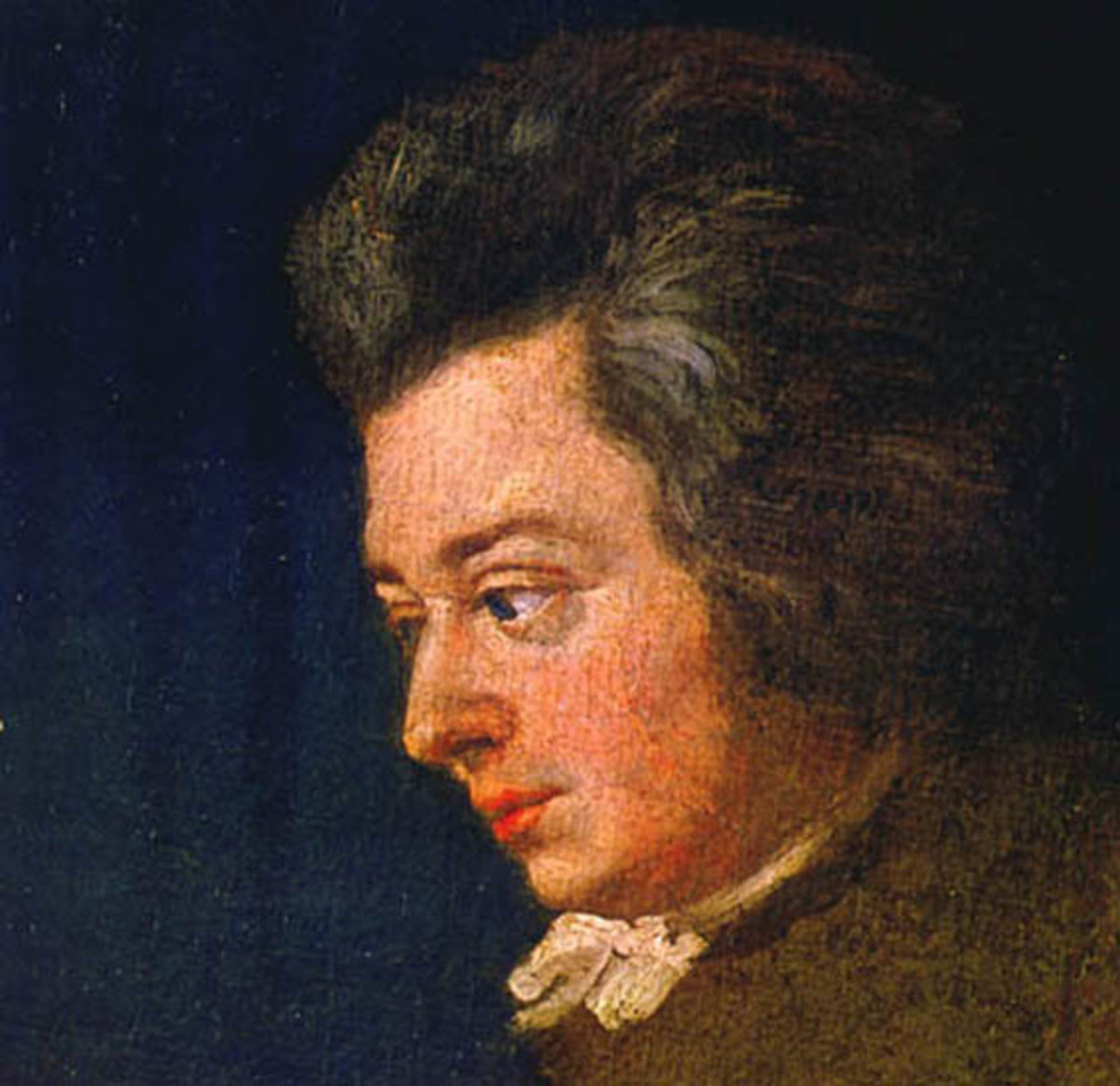Layman's Review: Beethoven - Symphony No. 3, Eroica
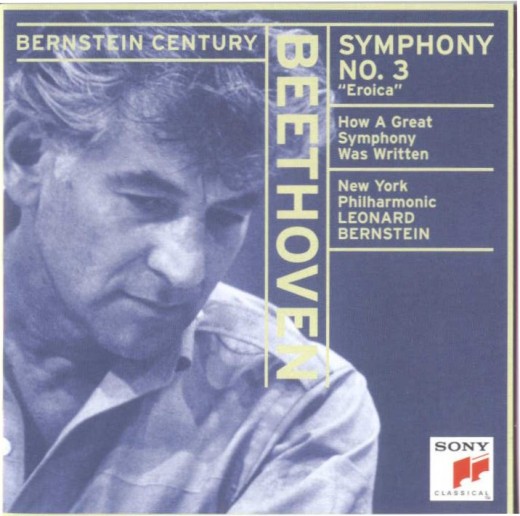
THE MUSIC
Beethoven's Eroica symphony opens with two chords heard round the world. These two simple, but powerful triads in E flat shook the foundations of serene early 19th century music. This was a battle cry. This was a Clarion call to a new understanding of music. This was Rock & Roll, 160 years before the Beatles!
It is said that a third of the people who heard it at the time of its premiere understood and appreciated it. Another 3rd didn't understand it at all, but held Beethoven in such high regard that it must be genius. And the final 3rd were so shell-shocked they would have preferred the whole affair had not taken place at all!
THE HISTORY
The background is a somewhat famous story. Upon completing his 3rd symphony, Beethoven had dedicated it to Napoleon Bonaparte. Beethoven was quite taken by the French general and his embodiment of the ideals of the French Revolution. However, Beethoven became disgusted with Napoleon when he crowned himself Emperor of France in 1804. Such was his disgust upon reading the news that he immediately went to his still unpublished score and scratched out the name "Bonaparte" so violently that he created a hole in the paper. Later, he changed the title to: Sinfonia eroica, composta per festeggiare il sovvenire d'un grand'uomo, or "heroic symphony, composed to celebrate the memory of a great man". To become forever known as simply "Eroica".
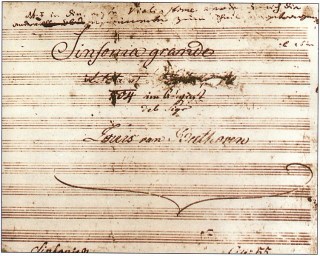
EROICA
Eroica is Italian for "heroic", and it is a descriptive name that works on many levels for Beethoven's 3rd Symphony.
On the most obvious level, the Eroica is full of drama and epic struggle from the 1st movement to the last. This is pulse-quickening, heart pounding music - this symphony is a verb!
On another level, consider the following. Circa 1802, Beethoven declared, "I am but lately little satisfied with my works, I shall take a new way." Beethoven's "new way" is what historians refer to as his "Heroic period", and it is during this period that Beethoven's compositions begin to explore much more emotional depths and lead many to say that Beethoven was the first of the Romantic composers, or was at the very least blazing the path that Romantic composers would continue down in his absence.
This is perhaps the first of Beethoven's compositions from his "Heroic period". It was written in 1803. The entire piece is threaded with drama and struggle of heroic proportions. In fact, even the length of the piece was colossal for the time. This is Queen's Bohemian Rhapsody, Floyd's Dark Side of the Moon and Sgt. Pepper's Lonely Hearts Club Band rolled into one.
Beethoven Symphony No. 3 in E Flat Major 'Eroica', Op. 55 Complete
GENIUS MEETS GENIUS.
The production quality on this CD is terrific, and Bernstein does a fantastic job conducting. But that's not why I bought this CD. In fact, there are at least 2 versions of Bernstein conducting Beethoven's Symphony No. 3 but this was the only one that had an additional 5th track in which Bernstein gives a lecture, "How A Great Symphony Was Written", which details the significance of the Eroica's 1st movement. It's exquisite. It's entirely understandable - even to someone who has no musical training. All that is required is an interest and a pair of ears!
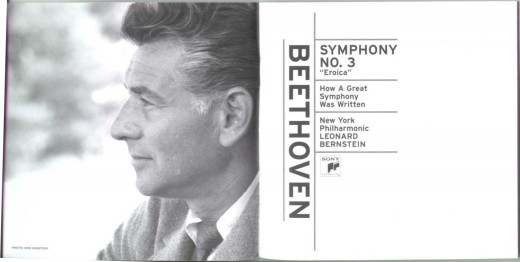
Here's how he opens the lecture, speaking after the two "hammer blow" notes that open the symphony:
"Simplicity itself made manifest. A theme is a statement, a bare fact. Beethoven always started with a fact, an axiom, and his art consists in examining that fact with so universal a range of vision that the axiom becomes living experience...."
In the pairing of Beethoven and Bernstein on this CD it is truly a case where genius meets genius.
Leonard Bernstein Discusses Beethoven's 3rd Symphony
CONCLUSION:
I would whole heartedly recommend this CD for anyone who is a serious fan of classical music, but also for anyone who is looking to broaden their knowledge of great (and historically significant) classical music. It's not great background music, and probably too much for casual listening, but it's perfect for armchair conducting or any vigorous activity.
For Further Information, Might I Suggest:
- Beethoven - The Eroica Symphony - Historical Notes on Ludwig van Beethoven - Symphony No. 3, Op. 55
Ludwig van Beethoven's Symphony No. 3, the Eroica Symphony, is known for its innovative features, heroic style, and influence on subsequent composers. This article discusses the performances, key, structure, and historical background of Beethoven's E - All About Beethoven
Ludwig van Beethoven resources including free sheet music, complete listing of all his works - both published and unpublished, and some biographical info. - Biography: Beethoven's life - Ludwig van Beethoven
A biography site for Ludwig van Beethoven's life and times.




